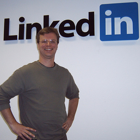 China has swept headlines with its recent space agenda and engineering efforts, including the world’s fastest supercomputer and bullet train, the world’s largest hydroelectric dam, and plans for a new space station and satellites that may visit Mars.
China has swept headlines with its recent space agenda and engineering efforts, including the world’s fastest supercomputer and bullet train, the world’s largest hydroelectric dam, and plans for a new space station and satellites that may visit Mars.
It’s a fresh indication of the growing science and technology prowess of the world’s most populated country, and experts fear China could soon eclipse the U.S. in the race for tech supremacy.
The National Academy of Engineers released a recent report illustrating the dire state of domestic science and technology, which called our inability to keep up with China "a coming storm"; the report is so bleak that it was subtitled "Rapidly Approaching Category 5." Charles M. Vest, president of the NAE, told FoxNews.com that the U.S. is still the dominant leader in science and technology -- but he fears a downslide is coming.
innovation DAILY
Here we highlight selected innovation related articles from around the world on a daily basis. These articles related to innovation and funding for innovative companies, and best practices for innovation based economic development.
The 11 Harsh Realities Of Being An Entrepreneur
 There's always talk about the end game in the form of an acquisition, funding announcement, or eventual flame out. Hollywood has even made a movie about the founding of Facebook that glamorizes startup life instead of showing what it really is: a day in day out marathon of work with very little glamor. We rarely hear about the harsh realities that entrepreneurs face and the journey that this entails. This isn't meant to be a downbeat and negative article, but actually quite the opposite. By knowing the harsh realities that lie ahead, you can be prepared when they come about so you can solider on. Here are some of the harsh realities that come with the territory of being an entrepreneur. roughroad
There's always talk about the end game in the form of an acquisition, funding announcement, or eventual flame out. Hollywood has even made a movie about the founding of Facebook that glamorizes startup life instead of showing what it really is: a day in day out marathon of work with very little glamor. We rarely hear about the harsh realities that entrepreneurs face and the journey that this entails. This isn't meant to be a downbeat and negative article, but actually quite the opposite. By knowing the harsh realities that lie ahead, you can be prepared when they come about so you can solider on. Here are some of the harsh realities that come with the territory of being an entrepreneur. roughroad
Your First Iteration of an Idea Will Be Wrong
The first iteration or implementation of your idea will often be wrong. That's not because you're not smart, not doing the right things, or some other reason to come down hard on yourself. As it turns out, this is actually a good sign. No idea survives its first interactions with its customers and requires you to synthesize feedback to adapt to the customer. You could be prideful, not listen to what your customers are telling you, and keep things the way they were. In the end, that just leaves you with no customers and a product you may not even use yourself. It's okay if things change up a bit when it comes to your idea and its implementation.
How To Create a Sustainable Entrepreneurial Community

When David Cohen (CEO of TechStars) and I co-founded TechStars in Boulder, Colo., in 2006, we had two goals in mind. The first was to energize the early stage software/Internet entrepreneurial community in Boulder. The second was to get new first-time entrepreneurs involved more deeply in the Boulder entrepreneurial community. Four years later, we feel like we really understand how entrepreneurial communities grow and evolve.
First is the recognition that Silicon Valley is a special place. It’s futile to try to be the next Silicon Valley. Instead, recognize that Silicon Valley has strengths and weaknesses. Learn from the strengths and incorporate the ones that fit with your community while trying to avoid the weaknesses. Leverage the natural resources of your community and be the best, unique entrepreneurial community that you can be. Basically, play to your strengths.
SBIR Insider 10-31-10
 Lots of SBIR action to report on, much of which is centered around SBIR 2.0, Tibbetts Awards, Milton Stewart Awards, more Altmire Quagmire, and of course election politics as it relates to SBIR and small businesses.
Lots of SBIR action to report on, much of which is centered around SBIR 2.0, Tibbetts Awards, Milton Stewart Awards, more Altmire Quagmire, and of course election politics as it relates to SBIR and small businesses.
We have no desire to try and influence your vote, but we do want you to be informed about the deeds of our politicians as it relates to SBIR and small business issues.
I feel the obligation to reiterate our SBIR Insider disclaimer: We hold both parties in equal contempt, so if we say something nice about the "other guys" it's not meant to be at "your guys" expense (whomever your guys are).
As for my party affiliation, I'm neither republican nor democrat. I'm a pedestrian.
2010 Life Sciences Salary Survey
 For the first time in The Scientist’s Salary Survey 10-year history, there has been a dip in salaries over the last year as universities cut bonuses, enforce furloughs, drag out hiring freezes, and even ask faculty members to take one for the team by accepting salary cuts. And with the rising costs of living and operating a lab, it’s not welcome news for anyone.
For the first time in The Scientist’s Salary Survey 10-year history, there has been a dip in salaries over the last year as universities cut bonuses, enforce furloughs, drag out hiring freezes, and even ask faculty members to take one for the team by accepting salary cuts. And with the rising costs of living and operating a lab, it’s not welcome news for anyone.
In 2006, husband-and-wife scientific duo Gia Voeltz and Brian DeDecker moved to Boulder, Colorado, from Boston, Massachusetts, to take up faculty positions as molecular biologists at the University of Colorado. Transitioning from postdoc salaries to two faculty incomes, “I thought we’d have a lot more expendable income,” laughs Voeltz, a biologist at UC. Instead, daycare for two little ones, running upwards of $2,500 per month, and a mortgage for a home in downtown Boulder sucks up most of their collective income, leaving little to stash away for future expenses like college tuition for their kids. “There are plenty of people in the country feeling a lot more pain than us,” DeDecker says, “but we’re not putting away a nest egg, so that’s kind of unsettling.”
Logitech K750 Is The World’s First Solar Keyboard
 Ah, mother sun: you give us maize, you give us warmth, and in the summer you give us just a little color, not too much, just maybe a little around the shoulders so we look like we went outside. Now you can charge our keyboards!
Ah, mother sun: you give us maize, you give us warmth, and in the summer you give us just a little color, not too much, just maybe a little around the shoulders so we look like we went outside. Now you can charge our keyboards!
The $80 Logitech K750 is the first solar keyboard built of fully recyclable plastic. The device has a set of solar panels along the top edge and even includes a luxmeter to tell how well things are charging. It charges in sunlight and even under a standard bulb.
5 reasons to block Facebook and Twitter at your office
 Facebook and Twitter have created a revolution in communications. You probably knew that.
Facebook and Twitter have created a revolution in communications. You probably knew that.
The problem with people saying whatever occurs to them to large groups of people, though, is your company secrets may not be as secure as you think. It’s definitely worth your time to have everyone under an appropriate confidentiality agreement, but more and more companies are blocking Facebook from their servers – and it’s something you might want to consider as well.
Below are five worst-case Tweets or status updates that, to many people, might sound innocuous, but could mean major headaches for your company.
LinkedIn’s Co-Founder On Why It Took Off – with Konstantin Guericke
 You’ll hear us mention in this program a lot of social networks that flopped. So why did LinkedIn take off when others couldn’t?
You’ll hear us mention in this program a lot of social networks that flopped. So why did LinkedIn take off when others couldn’t?
It all started with a series of walks that Konstantin Guericke took with his future LinkedIn co-founder, Reed Hoffman. In those walks, they took turns suggesting and knocking down business ideas. What they finally came up with was a series of ingredients that they used to create LinkedIn. You’ll hear all about them here, including why they intentionally targeted an audience that had money so they could generate revenue. How they insisted the site be useful more than fun, so it would become a necessity. And how they planned to make it to be social so users would promote it.
Build your own Startup Death Clock
if nothing changes, when will you run out of money?
Sometimes fear is a good motivator. In this case, fear takes the form of a tiny spreadsheet:

I know it's looks silly to name the very day that we run out of money — why not include the hour and minute too? Clearly it'd be more accurate to say "sometime in Q1 2011."
But the goal here isn't accuracy, it's motivation and focus. Nothing drives correct thinking about getting to profitability like facing your own demise. No hedging, no estimating, no complex Profit & Loss projections, just a date.
Confronted by an ultimatum, your thoughts crystalize. Maybe some of those things on your to-do list for this week aren't as important as you thought. Maybe you could get v1.0 out the door faster. Maybe you should be spending your time getting revenue instead of ruminating on the philosophy of startups with strangers in the comment section of some blog. (Err, except for this blog of course!)
US fund links USAID with entrepreneurs
 The US government has launched a major new initiative to link its aid agency USAID to the private and entrepreneurial sectors in a bid to promote technological innovation in the developing world.
The US government has launched a major new initiative to link its aid agency USAID to the private and entrepreneurial sectors in a bid to promote technological innovation in the developing world.
The Development Innovation Ventures (DIV) fund was launched in Washington, DC earlier this month (8 October) to link the private sector's financial discipline to the public sector's scale and reach in developing countries.
US$1 million has already been invested into eight different ventures including an affordable, clean, fuel-cell bike, solar lighting in rural Uganda and mobile phone health surveillance in India.
Moving away from Bricks-and-Mortar Tech Transfer
 University technology transfer methods are ready to meet the Long Tail. What’s the Long Tail? It’s a concept borrowed from statistics; if you imagine a bar chart with a few tall bars followed by a slow curve downwards, that’s a long tail curve. A bar chart that ranks sales of book titles at amazon.com, for instance, displays a classic long tail pattern: a few books sell a lot (the long bars) and a lot of books sell fewer copies (the gradual curve downwards). However, if you add up sales revenue from the more esoteric (i.e. not the New York Times bestsellers) books, their combined total revenue equal a pretty good chunk of income, almost as much as the revenue from the big best sellers.
University technology transfer methods are ready to meet the Long Tail. What’s the Long Tail? It’s a concept borrowed from statistics; if you imagine a bar chart with a few tall bars followed by a slow curve downwards, that’s a long tail curve. A bar chart that ranks sales of book titles at amazon.com, for instance, displays a classic long tail pattern: a few books sell a lot (the long bars) and a lot of books sell fewer copies (the gradual curve downwards). However, if you add up sales revenue from the more esoteric (i.e. not the New York Times bestsellers) books, their combined total revenue equal a pretty good chunk of income, almost as much as the revenue from the big best sellers.
Back when I worked in a tech transfer office at a large research university, I wanted to see which of our technologies were the ” greatest hits” on our web search engine and which ones were less popular. Using the number of page views per technology from our web analytics tool, I ranked the popularity of the inventions.
The Bucket List Lie
 Filled with visions of places to see, things to do, people to lunch with, books to read, mountains to summit…someday, before we die.
Filled with visions of places to see, things to do, people to lunch with, books to read, mountains to summit…someday, before we die.
Sadly, though, most bucket lists are works of fiction, written but never manifested.
Dreamed of, but never lived.
For most people, making them is the functional-equivalent of reading yet another self-help book, without ever doing anything beyond reading to actually help yourself. Lists like these are, with rare-exception, made, then tucked away, never to see the light of day.
Denmark's Active Investment in Entrepreneurship
 Denmark is in many ways a paradoxical country. It has the world’s highest taxes and yet Danes are among the happiest people in the world according to the U.S. National Science Foundation. Denmark has generous social benefits, a large public sector and yet is quite innovative and entrepreneurial. The Global Competitiveness Report and the Index of Economic Freedom both rank Denmark 9th on their world lists, and the Legatum Prosperity Index ranks the country 6th in entrepreneurship and innovation. Denmark did not end in the top ten of these world lists by chance. What steps and policy initiatives made this possible?
Denmark is in many ways a paradoxical country. It has the world’s highest taxes and yet Danes are among the happiest people in the world according to the U.S. National Science Foundation. Denmark has generous social benefits, a large public sector and yet is quite innovative and entrepreneurial. The Global Competitiveness Report and the Index of Economic Freedom both rank Denmark 9th on their world lists, and the Legatum Prosperity Index ranks the country 6th in entrepreneurship and innovation. Denmark did not end in the top ten of these world lists by chance. What steps and policy initiatives made this possible?
Making fun of government is a popular sport among entrepreneurs around the globe, but one must never forget it is government that sets the rules and incentives. Government needs to be a partner even if it cannot always be the ideal partner that embraces messy, entrepreneurial capitalism. Unlike most other European countries, Denmark has limited public involvement in business affairs and has a very flexible labor market. The difficulties that employers face in hiring and firing workers are significantly lower than in most OECD countries, as shown by the World Bank’s Rigidity of Employment Index, which places Denmark 9th in the world in the ease of employing workers, and the Heritage Foundation´s high Index of Labor Freedom for the country, 93.7 on a 100 point scale. This is a result of major growth enhancing policy reforms in the late 1980s and the 90s. Most importantly, stimulating entrepreneurship moved to the main part of the growth agenda in 2005, when a Liberal-conservative government set the following four goals to place Denmark in the global economy...
Internet Business Lingo Quiz for Entrepreneurs
 Many of the investors and entrepreneurs I know still don’t realize that they need to use and understand the Internet, even if their business is not e-commerce. Maybe you have also heard a lot of Internet terms, but are not sure you can explain how, when, and why they are relevant to your business success. Here is a quick test of your real Internet savvy.
Many of the investors and entrepreneurs I know still don’t realize that they need to use and understand the Internet, even if their business is not e-commerce. Maybe you have also heard a lot of Internet terms, but are not sure you can explain how, when, and why they are relevant to your business success. Here is a quick test of your real Internet savvy.
See how many of the following “new” Internet concepts you recognize, and can explain in terms of value to your business. Believe me, the business implications are already critical to your success or failure as an entrepreneur:
- Blog. A blog is basically a journal (“web log”) that is published on the web. Business blogs are an extension of your website and can effectively communicate the value of your business. You are now reading one of 50 million out there already. Blogs composed of video clips are called “vlogs.”
- Social networks. These are communities wrapped around a website, like Facebook or Twitter. They became popular for socializing, but now are prime sources of business networking, customer service, and client leads. Facebook alone has 500 million members. Do you have a business presence there?
Patents Issued per 100,000 Employees by State, FY 2004-2009
 U.S. patent activity increased in 2009, after two years of reduced activity, according to statistics from the U.S. Patent and Trademark Office (USPTO). U.S. applicants were awarded 95,037 patents in 2009, up from 92,001 in 2008. Last year marked a return to the patenting levels of the early part of the decade, though in 2006 the country had hit an anomalous all-time high with 102,267 patents.
U.S. patent activity increased in 2009, after two years of reduced activity, according to statistics from the U.S. Patent and Trademark Office (USPTO). U.S. applicants were awarded 95,037 patents in 2009, up from 92,001 in 2008. Last year marked a return to the patenting levels of the early part of the decade, though in 2006 the country had hit an anomalous all-time high with 102,267 patents.
About a quarter (24.6 percent) of all U.S. patent activity in 2009 occurred in California, a share that has grown steadily over the past 15 years. Californians were issued 23,354 patents last year, up from 22,203 in 2009. Other top states include Texas (6,436 patents), New York (6,127), Washington (4,856) and Massachusetts (4,038). Together, the top five states produced 46 percent of all U.S. patents. Japan received the highest number of U.S patents of any foreign country with 38,066 patents in 2009.
America throws out some of the best innovators in the world
 the brightest students in the world come to America because we have the best colleges and universities in the world, and we are also seen as a place in which people find it attractive to study and work. But then, after we train all these hundreds of thousands of students from all over the world, the cream of the crop, we throw them out of the country, we tell them don't you dare work here, because that would mean you would invent here, and hire people here, create new companies here, file new patents here, pay taxes here. No, no, no, go back to your country.
the brightest students in the world come to America because we have the best colleges and universities in the world, and we are also seen as a place in which people find it attractive to study and work. But then, after we train all these hundreds of thousands of students from all over the world, the cream of the crop, we throw them out of the country, we tell them don't you dare work here, because that would mean you would invent here, and hire people here, create new companies here, file new patents here, pay taxes here. No, no, no, go back to your country.
We've trained them often at taxpayer expense. Someone getting a computer science degree at the University of California at Berkeley is being trained at the California government's expense and is then thrown out of the country. We don't reap any benefits from it. This is a great investment strategy for the future of China and India. But it's a terrible investment strategy for the United States.
When the Assembly Line Moves Online
 DO one assigned task on your computer. It shouldn’t take you more than two seconds. Repeat 14,399 times. Congratulations! Your eight-hour work day is complete.
DO one assigned task on your computer. It shouldn’t take you more than two seconds. Repeat 14,399 times. Congratulations! Your eight-hour work day is complete.
No such workplace yet exists, but with the fiendishly clever creation of standardized two-second tasks, delivered to any computer connected to the Internet, it is now technically possible to set up.
Microtask, a start-up company in Finland, has come up with the software that delivers such tasks. The company offers to take on “dull, repetitive work” — like digitizing paper forms or business cards — for prospective clients. As it says in a video on its Web site, “Microtask loves the work you hate.”

 The digital technology revolution was, from the day the transistor was invented in the late 40s until the early part of last decade, largely about engineering. It is still very much about engineering but I've been thinking for a while now that as this revolution matures, it is becoming more and more about creativity and less about engineering.
The digital technology revolution was, from the day the transistor was invented in the late 40s until the early part of last decade, largely about engineering. It is still very much about engineering but I've been thinking for a while now that as this revolution matures, it is becoming more and more about creativity and less about engineering.
 Another American icon has bit the dust: Pontiac.
Another American icon has bit the dust: Pontiac.
 The U.S. housing market may have crashed, but bubbles around the world keep blowing.
The U.S. housing market may have crashed, but bubbles around the world keep blowing.
